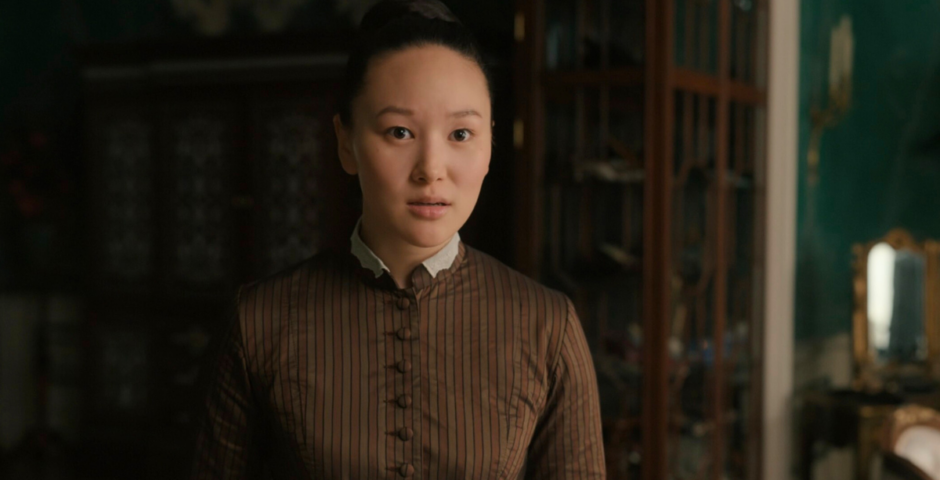
Review: Neighbourhood Watch
Nothing bad happens in suburbia…right?
“First tea, then war.”
This line perfectly sums up Alan Ayckbourn’s 2011 play Neighbourhood Watch, about what can go wrong when good idealists take ideas to their extreme.
The play starts with Martin (played by Sam Thompson) and Hilda (Betty Blythe), a pair of siblings who have just moved into a new suburban house overlooking a large field with a housing estate at the other end. The setting and characters seem to be the epitome of “Middle England”, referring to non-urban middle-class communities that tend to be associated with socially conservative views. For example, at various points in the play, characters criticise “sexual promiscuity”, smoking and even the consumption of alcohol.
The action develops with the community’s new neighbours attempting to set up a sort of neighbourhood watch organisation to stop the area being overrun by the supposed “drugs, violence…incest” that is believed to be going on in the nearby estate. This hugely escalates to the extent that the neighbourhood becomes totally unrecognisable by the end, with personal relationships between the residents also being transformed.

Image Credit: Paul Ashley
Most Read
The production relies heavily on stereotypes and provokes us to question our assumptions about communities such as these. Whereas, for instance, at the start Martin criticises the concrete constructions he can see in the distance from the window and acclaims that unlike other houses their house’s view is not obstructed by any fence, he ends up making decisions that cause this to be far from the truth by the play’s conclusion. At first these stereotypes and especially the naive way they view the housing estate as a nexus for all manner of unrealistic crimes, were funny and drew a good number of laughs from the audience. Nevertheless, the play seemed to be stuck in this stereotyped world, descending into satire without making it completely clear that that was what it wanted to be.
Nevertheless, the production in most parts was quite cleverly put together and the actors convincing. Within the set (designed by Oscar Griffin), I thought the collection of board games displayed throughout, particularly one called “Bedlam” and another “Saints and Sinners” (Martin and Hilda’s Christian religion is important), were a nice nod to the themes of the play. Furthermore, the lighting (coordinated by Sophie Richardson, Eloise Davis, and Jensen Koh) was nicely done with subtle changes in colour often signalling shifts in the conversations of the characters on stage at the time.

Image Credit: Paul Ashley
The actors were very emotive and did an especially good job of showing increased passion. Martin’s speeches (Sam Thompson) were particularly impassioned and Michael Iorchir as Rod always kept up a high intensity and convincingly embodied the demeanour of the character as an older man. Betty Blythe as Hilda showed a range of emotions well and her character was perhaps the most clever as the finale showed. In general however, I thought most of the characters were presented as quite two-dimensional. Perhaps this was to do with the script, but many characters seemed to fill a stereotypical role, such as Amy (confidently played by Irisa Kwok) who is presented as being quite promiscuous by the rest of the community- but only very briefly do we hear her side of the story.

Image Credit: Paul Ashley
However, some of the characters do change throughout the play- mainly Martin. It was very striking coming back for Act Two and seeing him partially transformed, wearing a suit (costume designer Emma Lewis). Everyone also starts calling him, as head of the neighbourhood watch organisation, “Chancellor”, in a disconcertingly quasi-fascist way (oh, they all also start wearing badges!). Thus, as the play goes on, it gets more fanciful and the script often gets over the top.
I’m sure the increasingly satirical turn was deliberate but the combination of the production’s increasingly overblown emotiveness and its complex themes (such as religion, different types of love, and trust) meant that for me the ending was not as powerful as it perhaps could have been.
Overall however, the production was an enjoyable and funny watch, and the audience responded very well throughout. It’s themes are familiar to anyone who has experienced rural or sub-urban Britain, and it is worth a watch to find out what can happen when small-mindedness takes over!
3.5/5
Neighbourhood Watch is showing at the ADC Theatre until Saturday 9th March. You can buy tickets here.
Feature image Credit: Paul Ashley



















